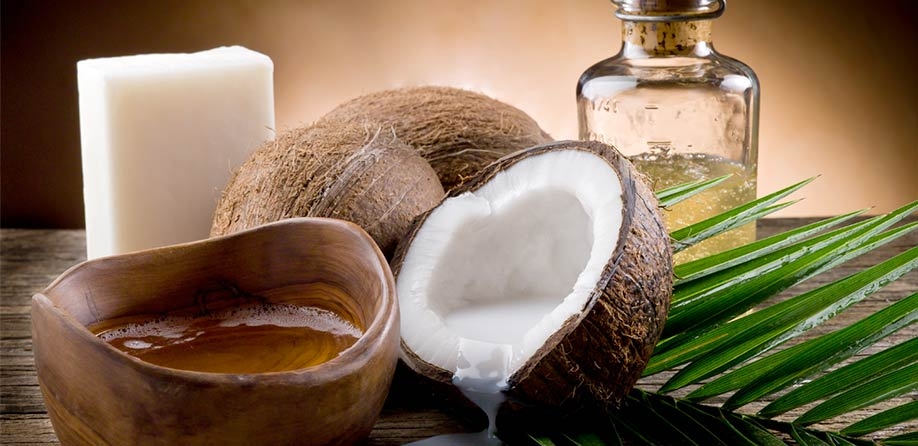
Why Virgin Coconut Oil?
Virgin organic coconut oil (unrefined, unbleached, unhydrogenated, cold-pressed, undeodorised) is the oil of choice for health-conscious people, and it’s used in everything from smoothies to personal care products. You can use coconut oil both inside and outside your body.
Virgin coconut oil is 44.6% lauric acid, 16.8% myristic acid, and 8.2% palmitic acid, and it’s composed mostly of medium-chain-fatty-acids (MCFAs). MCFAs are widely regarded as extremely useful for providing sustainable energy due to their molecular structure. Many bodybuilders and athletes rely on MCFAs as a key part of their high-performance diets.
Have you wondered how premium coconut oil is actually made?
First, whole coconuts are collected fresh off the tree, then shelled to remove the outer shell (the brown skin).
The white coconut meat is removed and ground at low temperatures into granules. These granules are then dried at 40°C-45°C.
Once dried, the coconut granules are loaded into a customized cold-process expeller that squeezes out the oil. This is also done at 45°C or lower in order to preserve the raw nutrients.
The oil that comes out is then loaded into a centrifuge machine that spins it at high speed to remove any moisture or particulate matter.
The resulting oil is called “Virgin Coconut Oil.” It is then poured into the final containers, labelled and shipped.
There is no cooking, pasteurization, fumigation, hydrogenation or other artificial process involved.
Coconut oil has a surprisingly long shelf life — up to six years on the shelf — due to its ability to naturally resist oxidation. When stored in the refrigerator, it becomes solid. When warmed at room temperature (23°C or higher), it becomes liquid.
Hippocrates Virgin Coconut Oil is available.




